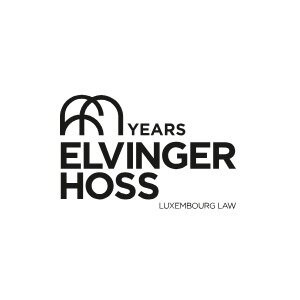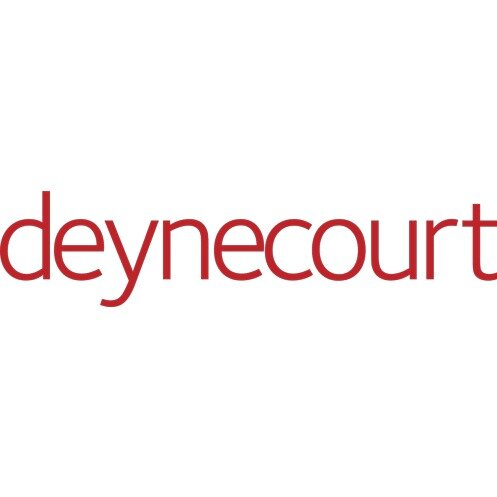Best Restructuring & Insolvency Lawyers in Luxembourg
Share your needs with us, get contacted by law firms.
Free. Takes 2 min.
Or refine your search by selecting a city:
List of the best lawyers in Luxembourg
About Restructuring & Insolvency Law in Luxembourg
Restructuring and insolvency law in Luxembourg provides a legal framework for financially distressed companies and their stakeholders. The goal is to manage financial difficulties, either through restructuring to restore financial health or through insolvency procedures to ensure orderly liquidation. Luxembourg is an important European financial center, and its laws are designed to protect both creditors and debtors while supporting business continuity where possible. The law defines several formal procedures that companies can use to address insolvency, including controlled management, composition with creditors, suspension of payments, and bankruptcy.
Why You May Need a Lawyer
Legal support is essential in restructuring and insolvency matters due to the complexity of Luxembourg’s laws and the high stakes involved. You may need a lawyer if you are facing any of these situations:
- Your business is struggling to pay debts and may be insolvent.
- You are being pursued by creditors and need advice on protection and negotiations.
- You are a creditor seeking to recover debts from a distressed company.
- Your company requires a restructuring plan to avoid insolvency and restore viability.
- You need to understand your legal obligations as a director or manager of a company in financial distress.
- You want to explore alternative solutions before entering into formal insolvency proceedings.
- A business partner or counterparty is going through insolvency and you are impacted by their situation.
Early legal advice can help preserve options, minimize risk, manage reputational impact, and navigate communication with courts, creditors, and regulators.
Local Laws Overview
Luxembourg has a well-developed legal system governing restructuring and insolvency matters. Key features include:
- Bankruptcy (Faillite): Initiated when a commercial entity cannot meet its debts as they fall due and has lost its commercial credit. Bankruptcy leads to the appointment of a receiver who manages the liquidation and distribution of assets to creditors.
- Controlled Management (Gestion contrôlée): A court-supervised process that aims to preserve the company’s activities by allowing it to reorganize or liquidate its assets in an orderly manner.
- Composition with Creditors (Concordat Préventif de la Faillite): An amicable procedure where a debtor seeks to reach an agreement with its creditors to avoid bankruptcy.
- Suspension of Payments (Sursis de Paiement): A temporary relief allowing companies to suspend payments for a short period while they seek to overcome temporary financial difficulties.
- Directors’ Duties: Company directors must file for insolvency within one month of insolvency occurring, aiming to avoid personal liability for late filing and aggravating the company’s financial situation.
- EU Regulations: For cross-border insolvencies, Luxembourg applies the recast EU Insolvency Regulation, which determines the main jurisdiction and recognition of foreign judgments within the European Union.
Procedures are court-driven and involve compliance with strict rules. Being proactive and well-advised can help improve outcomes for all parties involved.
Frequently Asked Questions
What is considered insolvency under Luxembourg law?
A company is insolvent if it is persistently unable to pay its debts as they fall due and has lost commercial credit. Both criteria must generally be met for insolvency proceedings to commence.
How can a company avoid bankruptcy?
A company can seek negotiated solutions such as controlled management, suspension of payments, or composition with creditors. Early intervention and expert advice can increase the chances of turnaround.
What happens when bankruptcy is declared?
A receiver is appointed by the court to manage the liquidation of assets and distribute the proceeds to creditors according to legal priorities. Directors lose their management powers and must cooperate with the receiver.
What are the consequences for directors in case of late filing for insolvency?
Directors may face civil and criminal liability if they fail to file for insolvency within the required period or if they worsen the financial situation of the company by continuing to trade while insolvent.
Are there specific laws for financial institutions or investment funds?
Yes, credit institutions, investment firms, and certain regulated entities are subject to specific insolvency regimes and oversight by the Luxembourg regulator, the Commission de Surveillance du Secteur Financier (CSSF).
What rights do creditors have in insolvency proceedings?
Creditors can file their claims, participate in creditors’ meetings, and are entitled to receive payments from any available proceeds in an order set by law. Secured creditors may have some preferential rights.
Is restructuring possible after formal insolvency proceedings have started?
Restructuring options are limited once bankruptcy is opened, but other procedures such as controlled management or composition with creditors are specifically designed as alternatives before bankruptcy.
Can foreign companies be subject to Luxembourg insolvency proceedings?
Yes, if their center of main interests (COMI) is in Luxembourg, or in accordance with EU cross-border insolvency regulations, foreign companies may be subject to Luxembourg proceedings.
How can individuals (not businesses) seek insolvency relief in Luxembourg?
While most procedures are aimed at businesses, individuals operating a commercial activity can also become subject to bankruptcy proceedings. Personal insolvency options are otherwise limited.
How long do insolvency proceedings usually last?
The duration varies depending on the complexity of the case, the type of assets involved, and the cooperation of the parties. Proceedings can take several months to multiple years.
Additional Resources
Several organizations and governmental bodies in Luxembourg provide information and assistance on restructuring and insolvency matters:
- Luxembourg Bar Association (Barreau de Luxembourg): Provides information and helps you find qualified legal professionals in the field.
- Commission de Surveillance du Secteur Financier (CSSF): Regulates financial institutions and provides guidance for entities under its supervision.
- Tribunal de Commerce de Luxembourg: The commercial court overseeing insolvency proceedings.
- Chamber of Commerce (Chambre de Commerce): Offers support and resources for Luxembourg-based businesses facing financial challenges.
- Insol Europe: A Europe-wide association for insolvency practitioners with a Luxembourg section.
Next Steps
If you or your business are facing potential insolvency or are involved with distressed assets, it is vital to:
- Seek legal advice as early as possible to assess your position and available options.
- Gather all relevant financial information and documentation for your legal counsel.
- Discuss with your lawyer which procedures best fit your situation, such as restructuring, controlled management, or formal insolvency.
- Engage with relevant stakeholders, including creditors and business partners, with the guidance of your legal counsel to protect your interests.
- Follow legal and regulatory requirements strictly to avoid personal or business liability.
Choosing the right legal partner who is experienced in Luxembourg restructuring and insolvency law will give you peace of mind and a clear route forward, whether you are seeking to restructure, wind down operations, or recover debts as a creditor.
Lawzana helps you find the best lawyers and law firms in Luxembourg through a curated and pre-screened list of qualified legal professionals. Our platform offers rankings and detailed profiles of attorneys and law firms, allowing you to compare based on practice areas, including Restructuring & Insolvency, experience, and client feedback.
Each profile includes a description of the firm's areas of practice, client reviews, team members and partners, year of establishment, spoken languages, office locations, contact information, social media presence, and any published articles or resources. Most firms on our platform speak English and are experienced in both local and international legal matters.
Get a quote from top-rated law firms in Luxembourg — quickly, securely, and without unnecessary hassle.
Disclaimer:
The information provided on this page is for general informational purposes only and does not constitute legal advice. While we strive to ensure the accuracy and relevance of the content, legal information may change over time, and interpretations of the law can vary. You should always consult with a qualified legal professional for advice specific to your situation.
We disclaim all liability for actions taken or not taken based on the content of this page. If you believe any information is incorrect or outdated, please contact us, and we will review and update it where appropriate.
Browse restructuring & insolvency law firms by city in Luxembourg
Refine your search by selecting a city.

















